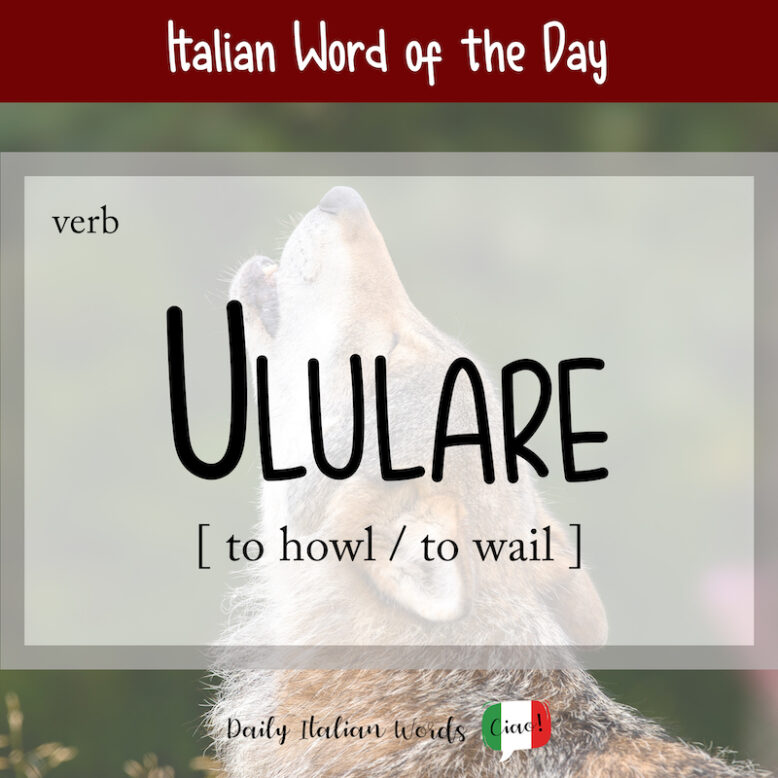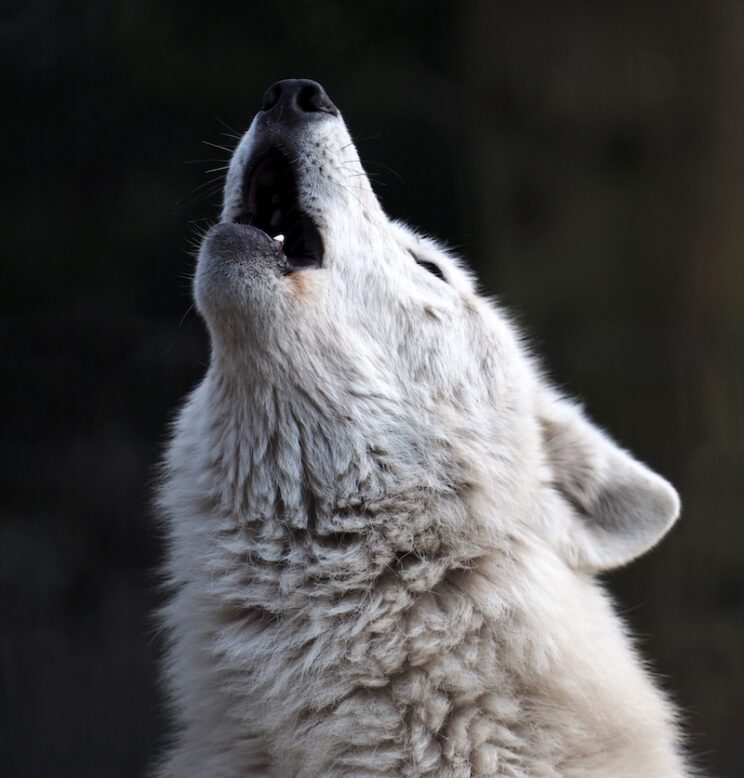The verb ululare (and its English cognate to ululate) descends from the Latin verb ululare, meaningto howl or to wail. The Latin root carried the same meaning as the modern Italian word, and almost certainly originated from the howling sound associated with it.

Ululare is a regular -are verb, so it can be conjugated in the following manner in the present tense:
(io) ululo = I howl
(tu) ululi = you howl (singular, informal)
(lui) ulula = he howls
(lei) ulula = she howls
(Lei) ulula = you howl (singular, formal)
(noi) ululiamo = we howl
(voi) ululate = you howl (plural)
(loro) ululano = they howl
When the verb ululare is used in a literal sense, it almost always refers to the long howl emitted by dogs or wolves.
Il lupo ululava alla luna piena.
The wolf howled at the full moon.

There is an idiomatic expression that refers to the howl of a dog: abbaiare alla luna, where the verb abbaiare (to bark) is used instead. It refers to someone who gets upset for nothing, or complains about a person who has done nothing wrong.
As is the case with many verbs of this nature, the meaning of ululare can be extended to other things that emit a similar sound, such as a strong and persistent wind, a siren, or a person howling in grief.
Improvvisamente, il vento ululò e la mia finestra si chiuse con violenza.
Suddenly, the wind howled and my window slammed shut.

Heather Broster is a graduate with honours in linguistics from the University of Western Ontario. She is an aspiring polyglot, proficient in English and Italian, as well as Japanese, Welsh, and French to varying degrees of fluency. Originally from Toronto, Heather has resided in various countries, notably Italy for a period of six years. Her primary focus lies in the fields of language acquisition, education, and bilingual instruction.


